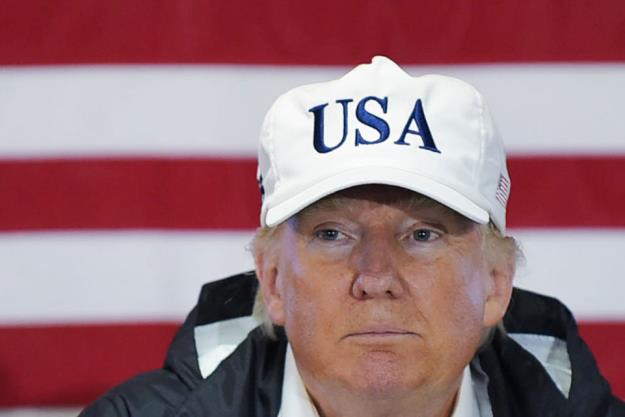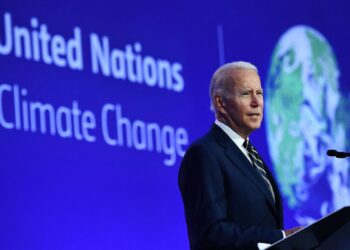The foreign policy of Donald J. Trump’s administration is unorthodox, to say the least. Since he came into office, he has treated close U.S. friends and allies with contempt, embraced – at least rhetorically – U.S. competitors, and called into question major features of the liberal international order. This approach appears likely to leave the U.S. weaker and worse off in the long run.
So why is Trump pursuing this course of action? Is it a symptom of his personal idiosyncrasies or do Trump and his advisors believe their strategy will actually redound in America’s favor? This article tries to make sense of this, suggesting that there are some useable and consistent frames of reference for understanding Trump’s foreign policy.
Trump the Dealmaker
Trump personally fancies himself as a “dealmaker.” In 2000, he wrote that the U.S. had to switch from being a chess player to a dealmaker after the Cold War: “In the modern world you can’t very easily draw up a simple, general foreign policy. I was busy making deals during the last decade of the Cold War. Now the game has changed. The day of the chess player is over. Foreign policy has to be put in the hands of a dealmaker… A dealmaker can keep many balls in the air, weigh the competing interests of other nations, and above all, constantly put America’s best interests first. The dealmaker knows when to be tough and when to back off.”
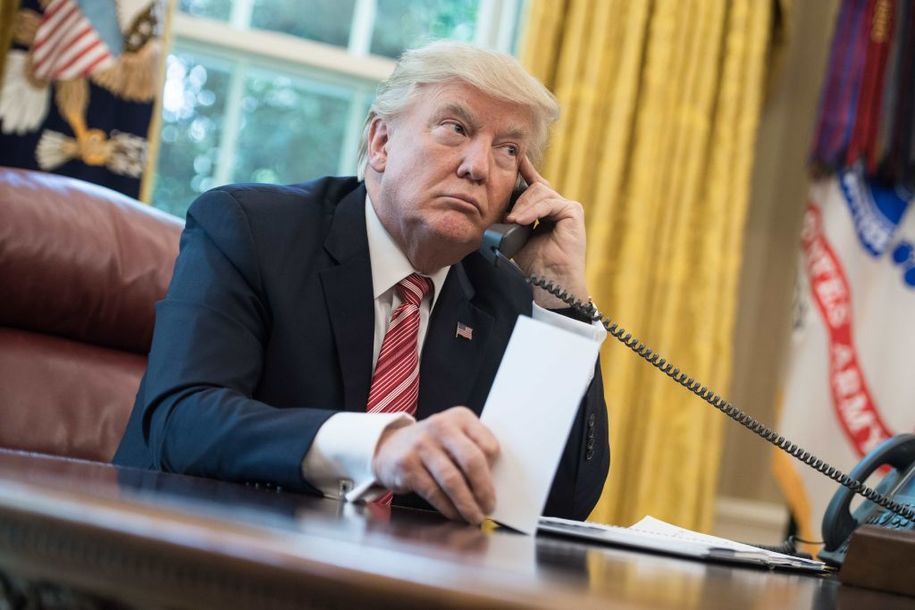
This has expressed itself through Trump taking a number of extreme positions at odds with U.S. foreign policy orthodoxy. During the election campaign, this included declaring that he might accept the breakup of NATO (and he has continued to be hostile to the alliance since his electoral victory), could allow Japan and South Korea to acquire nuclear arms, would entertain withdrawing U.S. military forces from South Korea, could leave the North Atlantic Free Trade Agreement (NAFTA), withdraw from negotiations over the Trans-Pacific Partnership (TPP) – which he made good on shortly after arriving in office – and pull out of the Paris Climate Agreement, which is in process.
A case can be made that withdrawal from the TPP and Paris Agreement damaged the U.S. and was a self-defeating move. So why do this?
One possibility is to communicate that Trump’s threats are credible. This would give the U.S. more leverage when, say, it came time to renegotiate NAFTA with Mexico and Canada (who could no longer discount U.S. threats to walk away from the agreement) and validate Trump’s threat to accept the breakup of NATO, which he connected to the need for U.S. allies to pay their fair share. By leaving the Paris Agreement and TPP negotiations it, at least in theory, creates incentives for U.S. allies to bend in negotiations or contribute more to NATO to ensure the alternative – U.S. withdrawal – is avoided at all costs.
Trump the Unpredictable
The one predictable thing about Trump’s behavior is its unpredictability. Thomas Schelling, in his seminal book The Strategy of Conflict, explained it can be rational to act irrationally. If one constantly acts irrationally, opponents are unable to predict your next move, increasing your leverage over them. Furthermore, they may be less likely to take action at your expense, since they do not know what your reaction will be. U.S. President Richard Nixon, Soviet Union Premier Nikita Khrushchev, and the Iranian and North Korean regimes have all adopted this tactic at times.
What is unusual is an American president so avidly embracing this approach and making it a central pillar of foreign policy. Indeed, earlier this year, one senior national security official stated that “permanent destabilization creates American advantage.” Additionally, Trump said during the election that “this country has to be less predictable.”
This approach has been displayed in Trump’s behavior towards North Korea, where both leaders appear to be trying to gain the upper hand as the supreme “madman.” Consider that only last year, both states were threatening to annihilate one another, Trump was labeling Kim “Rocket Man,” yet also saying he would be “honored” to meet Kim under the “right circumstances.”
Additionally, in mid-May this year, North Korea threatened to cancel the Kim-Trump summit in response to ongoing U.S.-South Korea military exercises. This seemed odd and irrational since the summit had been agreed to in the knowledge that these war games would continue.
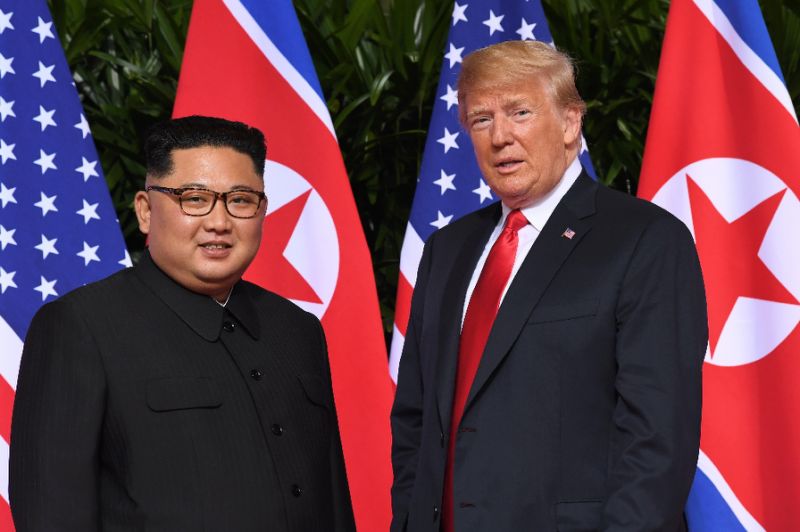
The logical explanation is that North Korea wanted to keep the U.S. and its allies on their toes by continuing to project its “craziness.” Trump responded a week later by seemingly canceling the summit, only to reverse position a day later to say the summit was back on. This also seemed erratic and crazy but was consistent with Trump’s desire to keep the upper hand in the craziness game.
Trump the Anti-Liberal
As noted, Trump is indifferent, if not hostile, to the existing liberal rules-based order and America’s key allies while outwardly friendly with dictators and American adversaries. The common explanation is that Trump has “dictator envy” and that he is personally comfortable dealing with strongmen abroad.
So what alternative explanation is there? Trump’s liberal demolition job and outreach to authoritarian states may be about China, the only conceivable near-peer or peer competitor to U.S. primacy in the 21st century. Furthermore, as China’s power grows, a number of neutral and nonaligned states, or perhaps states part of America’s formal extended alliance system, could start to lean towards China at the expense of the U.S.
A number of states relevant to the U.S.-China strategic competition are also authoritarian or have forms of illiberal democracy; they do not share America’s governing liberal ideology. While throughout the Cold War American liberalism had to be set aside so the U.S. could partner with anti-Communist (and often illiberal) regimes to counter Soviet influence, after the Cold War the U.S. faced no near-peer rival, allowing it to indulge its ideological impulses and seek to spread liberalism abroad.
In the years to come, America’s liberal ideology could motivate states caught between Washington and Beijing to lean towards China if they fear that, like Iraq in 2003 and Libya in 2011, U.S. liberalism could spur the use of American power to undermine illiberal regimes. In contrast, Beijing professes to have a non-ideological and non-interventionist approach to world affairs – it doesn’t care what political stripe another state is.
Trump, in other words, is dispensing with any semblance of promoting liberalism and democracy in world affairs, since this ideological impulse could leave it disadvantaged in its competition as China’s power rises.
This approach appears designed to try give Trump room to maneuver to attempt his own “Nixon to China” moments with Moscow and Pyongyang. Is it any coincidence that the Trump-Kim summit was followed by a Trump-Putin summit?
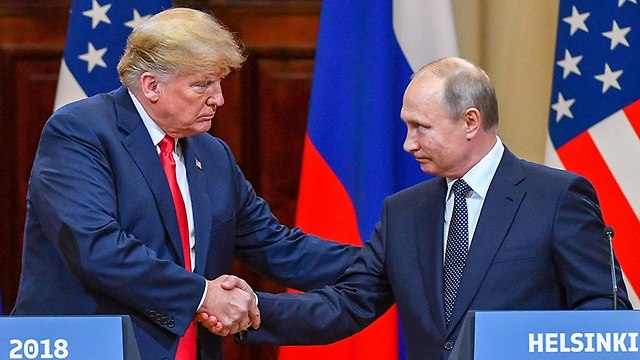
The goal with respect to North Korea would be to reunify the Korean peninsula in a way that benefits the U.S. at China’s expense (as well as eliminate a nuclear threat). With respect to Russia, it would be to forestall improving Chinese-Russian ties from evolving into a full-blown Eurasian alliance.
The Trump administration may believe there are little real material costs to adopting this approach as, for America’s traditional allies, the U.S. is the only real game in town, and that even if these allies dislike the current U.S. foreign policy they lack the will to withdraw from their alliances with the U.S.
Trump the Gambler
Trump does not lack a discernible and consistent foreign policy. But, at least relative to recent history, it is an unfamiliar and unnerving one. It may very well mark a break from an era where the U.S. championed and lead a liberal-rules based order, to one where Washington nakedly pursues its own interests. This does not mean Trump will destroy U.S. alliances, rather he will expect U.S. allies to do more for the U.S., and he will operate in a manner that seeks to bring illiberal regimes onto America’s side at the expense of upholding liberal values.
Ultimately, Trump’s strategy may be a grand gamble that weakens the U.S. over the long-term, or it may prove to be a canny strategy that relatively empowers the U.S. in the midst of the chaos and confusion Trump is actively stimulating. Whether it will benefit the world, or come at its expense, is an open question.
Disclaimer: The views and opinions expressed here are those of the author and do not necessarily reflect the editorial position of The Globe Post.

